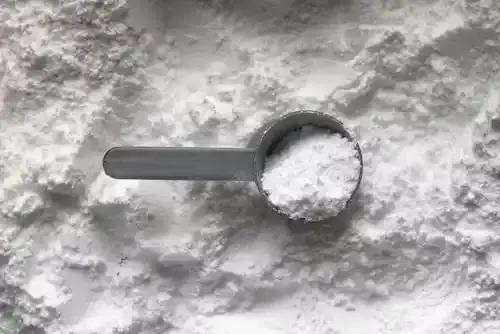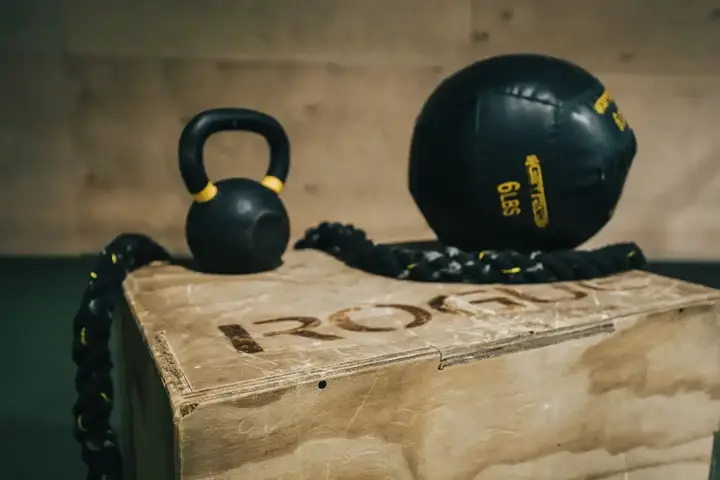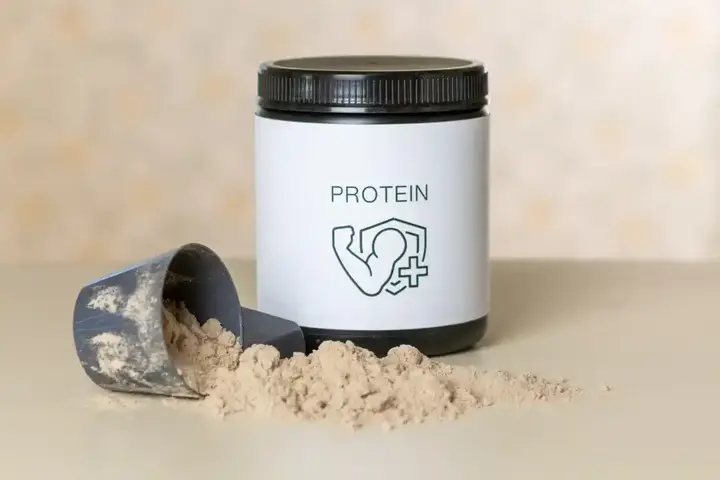We've made a mistake about protein supplements: they're more beneficial than we thought, and some work better than others.
If you're 40 or older, you need to eat more protein to build the same amount of muscle as someone in their twenties, but you also need to eat fewer total calories each day. Protein supplements can help achieve both goals. But some types of protein work better than others when it comes to building and maintaining muscle.
Less protein strength as we age

The overall calorie needs of adults decrease slightly each year as we age. If someone over the age of 30 doesn't exercise, they lose 3-5% of muscle mass every decade and burn fewer calories. Exercise can slow age-related muscle loss but won't always prevent it. So middle-aged and older adults should already fit the same amount of dietary protein in a lower total calorie requirement.
Recommend
Scientists are studying muscle protein synthesis, the process of building new muscle, as one way to see if diet or exercise program helps maintain or build muscle. Younger adults don't need to eat a lot of protein to start muscle protein synthesis. Enough only 0.24 grams of protein per kilogram of body weight. If an adult weighing 180 pounds eats 19 grams of protein at a time, it's enough to start the process of muscle repair and maintenance. Adults over the age of 65 need almost twice as much protein, 0.4 grams of protein/kg body weight, for an equal amount of muscle protein synthesis stimulation. So, the same person at age 65 needs to eat 32 grams of protein to start muscle protein synthesis, although they may need fewer total calories each day. This average daily minimum protein intake is 0.8 grams of protein per kg of body weight for younger adults but 1.2 grams per kg of protein for older adults, and guidelines shift to push for more protein intake.
When "food first" is not the best

Healthcare workers try to help customers meet most of their protein needs through food, which is generally a healthy approach. But when appetite and overall calorie needs are lower, providers have started recommending protein supplements sooner rather than later to slow muscle loss. Adding protein supplements to the diet early on for someone with low appetite or overall calorie needs can prevent some muscle loss even if the person is inactive. Not all supplements are created equal and several types of animal and plant-based protein powders are available.There are three supplements commonly sold: whey, collagen, and pea protein. Whey comes from the liquid parts of milk that separate when cheese is made. It contains lactose (milk sugar) and is well absorbed by the body, especially when used as a whey protein concentrate. Collagen is found in bones and muscles and promotes healthy skin and joint elasticity. Dietary supplements from collagen are synthesized in animal tissues. Vegetable collagen made from yeast or bacteria is also available. Pea protein is usually made from the protein found in yellow peas. It also contains some dietary fiber. Healthcare professionals have been recommending whey protein powder as the best supplement option. Pea protein powder and collagen were recommended only for those who could not use whey protein, such as vegetarians or those with milk protein allergies. Studies published in the past four years have improved this guidance. A series of trials conducted at McMaster University and the University of Ottawa in Canada on younger and older adults were conducted to see which types of protein supplements increase muscle protein synthesis even when exercise levels do not increase. Whey protein and pea protein supplements performed equally well and increased muscle protein synthesis by a significant amount. Collagen protein powder caused no increase in muscle protein synthesis except for one study conducted in 2015 and 2016, in older men with muscular dystrophy.
Protein works on its own

Dietary protein alone does not increase muscle size. Resistance training helps the body take advantage of all this protein diet.Research trials evaluating the use of protein supplements with exercise have reported amazing muscle gains. But surprisingly, these recent studies have revealed that muscle protein synthesis has increased enough to prevent rapid muscle loss even without exercise. But you still need resistance training or bodyweight exercises such as push-ups and other gymnastics exercises to get bigger muscles. But for older adults who may become at risk of becoming highly debilitated, dietary protein performs better than scientists expected. It can slow the rate of muscle loss in an inactive person even without increased exercise. This area of research is very active in part because protein supplements are a highly lucrative business and funds are available to study them. This should be taken into account when evaluating the methods and results of each study, but a good quality study should not be rejected simply because it involves industrial funding. Those who struggle to get enough protein from food in less than their total daily calories can set themselves up for a healthier, more independent future by including whey or pea protein supplements in their diet.








